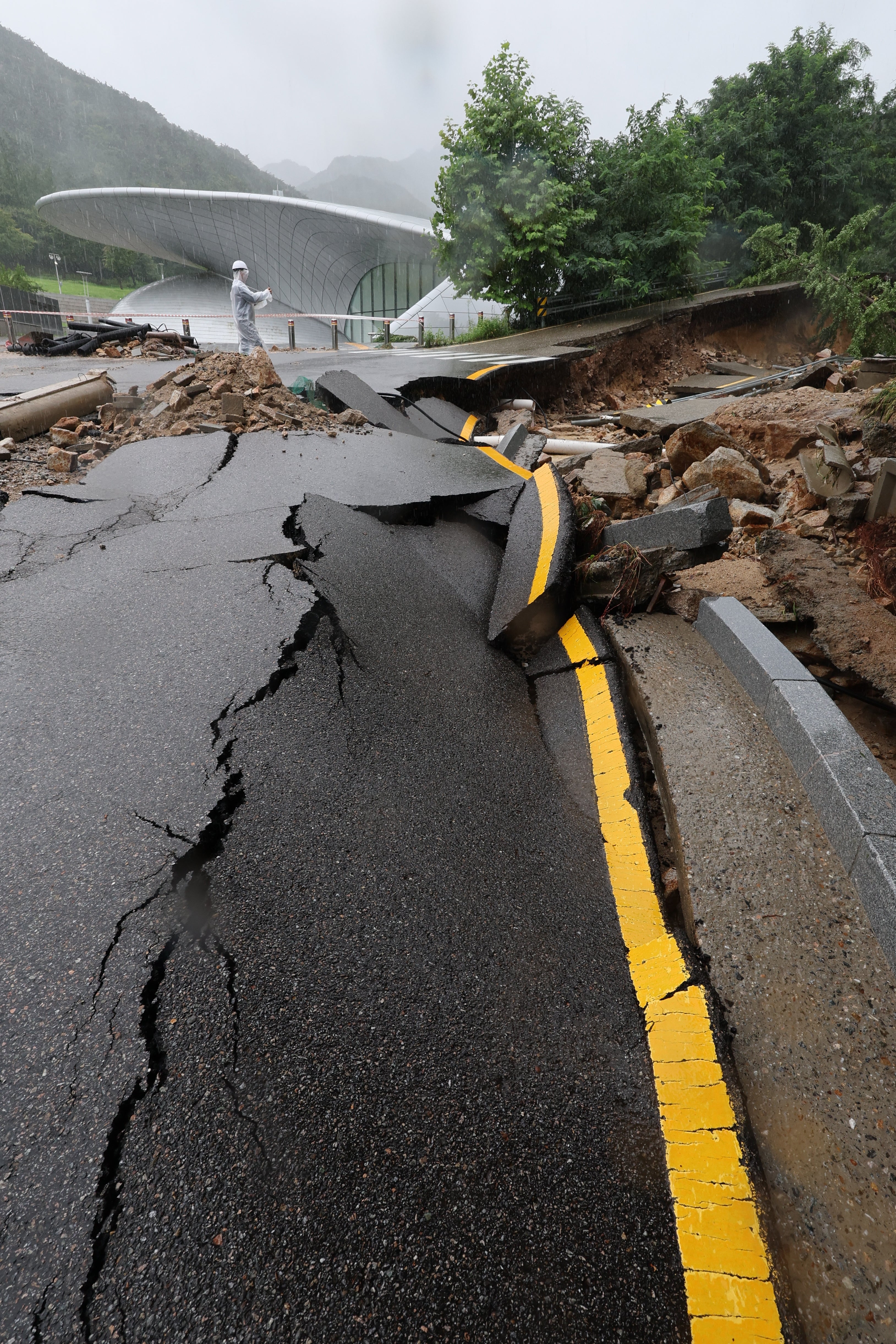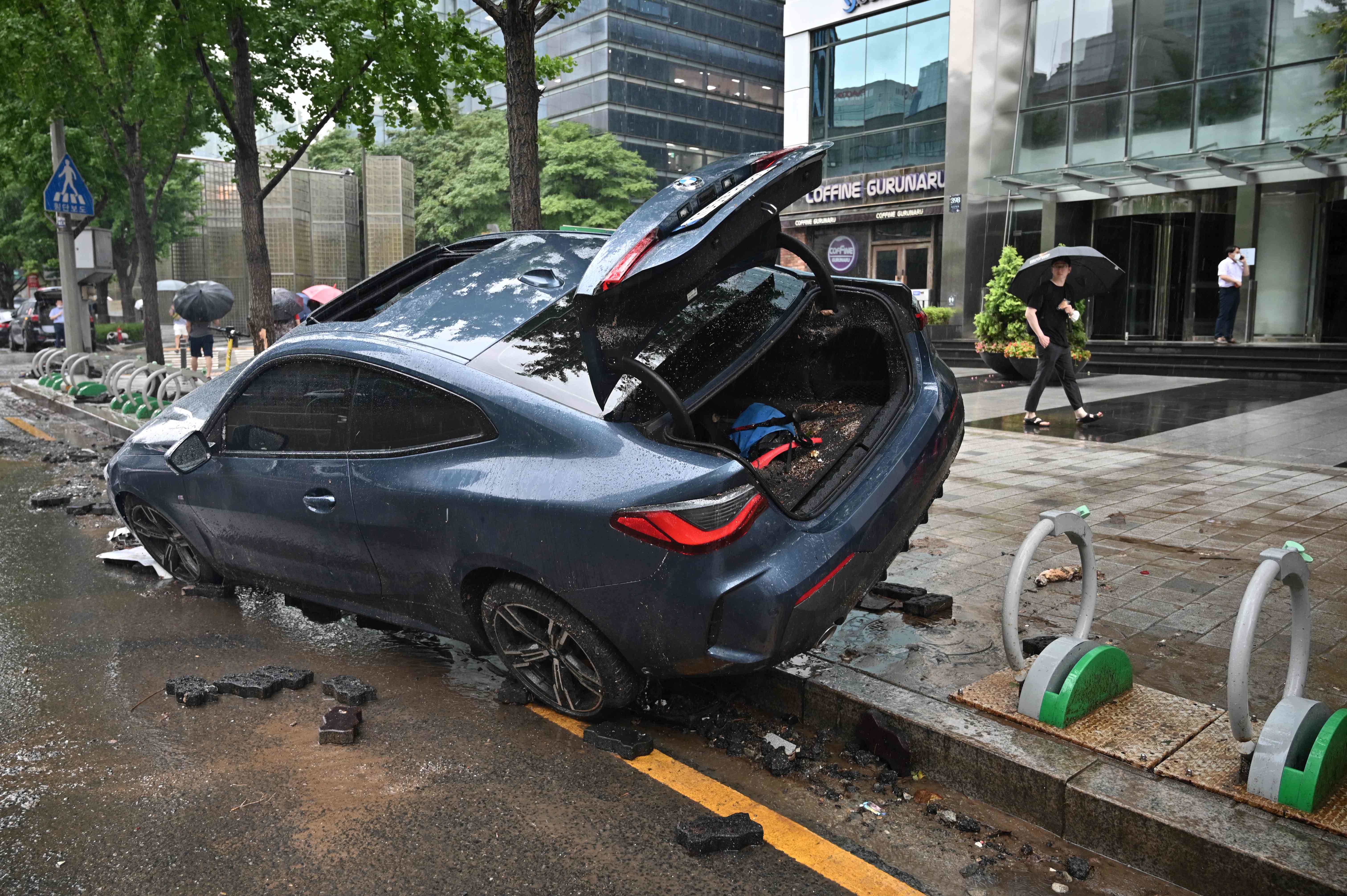Seoul to ban ‘Parasite’-style basement homes after four people drown in storm
Landlords will get 10 to 20 years to remove these structures and convert them into non-residential spaces
Your support helps us to tell the story
From reproductive rights to climate change to Big Tech, The Independent is on the ground when the story is developing. Whether it's investigating the financials of Elon Musk's pro-Trump PAC or producing our latest documentary, 'The A Word', which shines a light on the American women fighting for reproductive rights, we know how important it is to parse out the facts from the messaging.
At such a critical moment in US history, we need reporters on the ground. Your donation allows us to keep sending journalists to speak to both sides of the story.
The Independent is trusted by Americans across the entire political spectrum. And unlike many other quality news outlets, we choose not to lock Americans out of our reporting and analysis with paywalls. We believe quality journalism should be available to everyone, paid for by those who can afford it.
Your support makes all the difference.South Korea is set to phase out all basement and semi-basement flats in the capital Seoul after four people drowned in such homes this week during the worst storm the city has faced in more than a century.
The tiny dwellings, known as “banjiha” homes, were featured in the Oscar-winning Parasite, and symmbolised economic disparity. The country’s urban poor often live in these semi-underground homes.
Seoul authorities said landlords and owners will now be given 10 to 20 years to remove these structures and convert them into non-residential spaces such as storage or parking lots.
Officials said they would coordinate with the government to revise building laws to ban the construction and use of basements or semi-basement homes for residential purposes, according to a Yonhap report.
The administration will deny permits to construct such homes from this week, officials added.
The announcement came after Seoul was hit by its heaviest downpour in 115 years, killing at least 11 people.
Many remain missing in Seoul and nearby Gyeonggi Province following the heavy rains that swamped the region on Monday and Tuesday, turning streets into car-clogged rivers, flooding subway stations, triggering landslides, and displacing more than 1,800 people from their homes.

Among those who died in rain-related incidents were three members of a family – a woman, her sister and teenage daughter. They were found dead after being trapped in a flooded semi-basement home in Sillim-dong.
According to a local newspaper, a woman in her 50s was also found dead in a basement flat after being drowned.
These tragedies in flooded basements have renewed the attention on inequalities in South Korea, which were brought to international attention by the Korean-language film Parasite. It showed how people living in such dwellings struggle to make ends meet and are largely ignored by the society’s rich.

The success of the movie and its subsequent Oscar win forced the city government to pledge to financially support at least 1,500 households living in these apartments.
“Underground and semi-underground housing threatens the vulnerable in all aspects,” Seoul mayor Oh Se-hoon said.
About five per cent or 200,000 homes in Seoul are basement or semi-basement flats, according to a 2020 census by the city’s metropolitan government.
Inequality and the gap between the rich and the poor has worsened with the coronavirus pandemic.
The income gap between most lowest category groups and the top 20 per cent of households has increased since 2019, a report by Shinhan Bank showed in April.
Additional reporting by agencies





Join our commenting forum
Join thought-provoking conversations, follow other Independent readers and see their replies
Comments